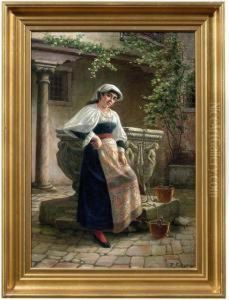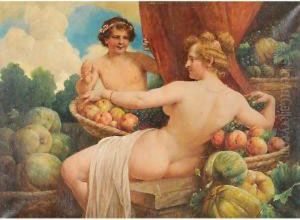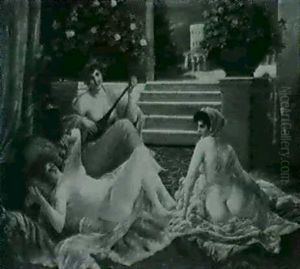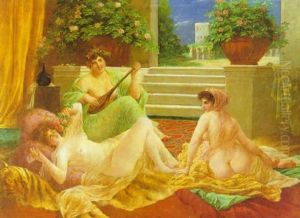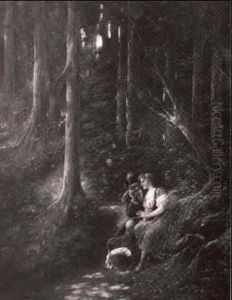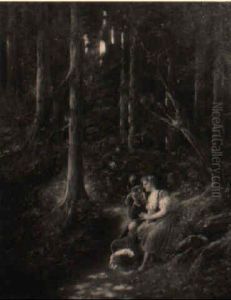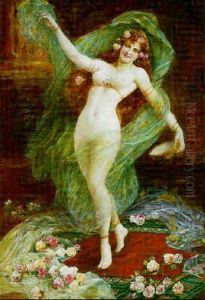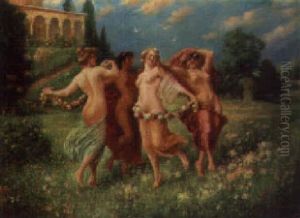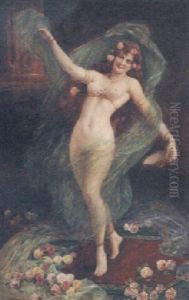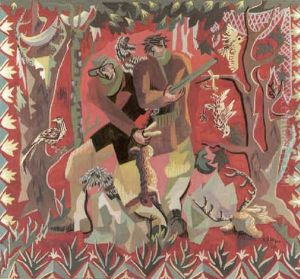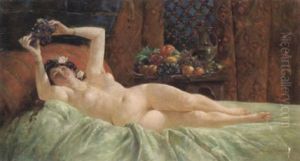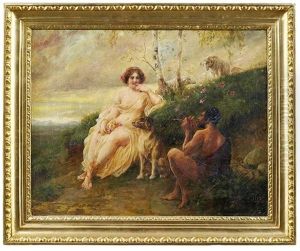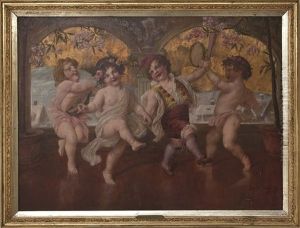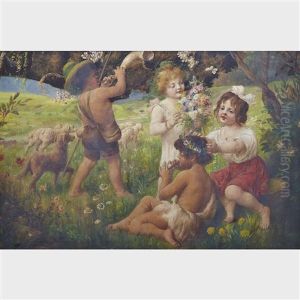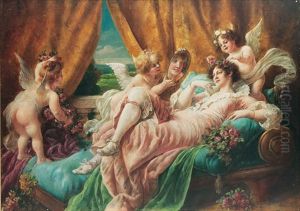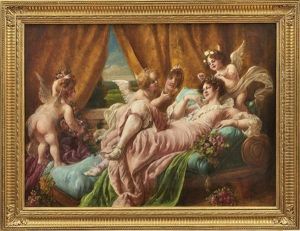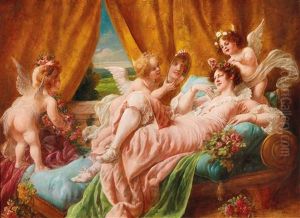Friedrich Schlegel Paintings
Friedrich Schlegel, born Karl Wilhelm Friedrich Schlegel on March 10, 1772, in Hanover, was a German poet, critic, and a pivotal figure in the early Romantic movement. His work and thought significantly influenced the development of German Romanticism, intertwining literary criticism, philosophy, and philology in a new and profound way. Schlegel's early education was influenced by his family's intellectual environment; his father was a Lutheran pastor, and his brother, August Wilhelm Schlegel, was also a prominent figure in German literature.
Schlegel's journey into the heart of Romantic thought began in earnest while he was studying at Göttingen University, where he was exposed to the works of contemporary thinkers and writers. His move to Jena in 1796 marked a turning point, bringing him into contact with other leading figures of the Romantic movement, including Johann Wolfgang von Goethe, Friedrich Schiller, and his future wife, Dorothea Veit. It was during this period that Schlegel published some of his most influential works, including 'Lucinde' (1799), a novel that celebrated love and marriage as sources of moral and spiritual growth, which was controversial for its time due to its frank treatment of sexuality.
Schlegel's contributions to literary criticism were monumental, particularly through his concept of Romantic irony, which posited that self-awareness and self-critique were fundamental to the creation of art. He was also a pioneer in the study of Sanskrit and Indian culture, which he argued had a profound influence on Western thought and literature. His lectures on dramatic art and literature, delivered in Vienna between 1808 and 1809, were pivotal in defining the characteristics of Romanticism and remain influential to this day.
In his later years, Schlegel's interests shifted towards history and philosophy, moving away from the artistic and literary criticism that marked his early career. He became a fervent Catholic, which influenced his later works, and he served as a secretary to the Austrian statesman Metternich and as an official Austrian diplomat at the Congress of Vienna. Schlegel continued to write and lecture until his death on January 12, 1829, in Dresden. His legacy is marked by his profound impact on the Romantic movement and his contributions to literary theory, criticism, and comparative linguistics, making him one of the most important figures of early 19th-century German thought.
